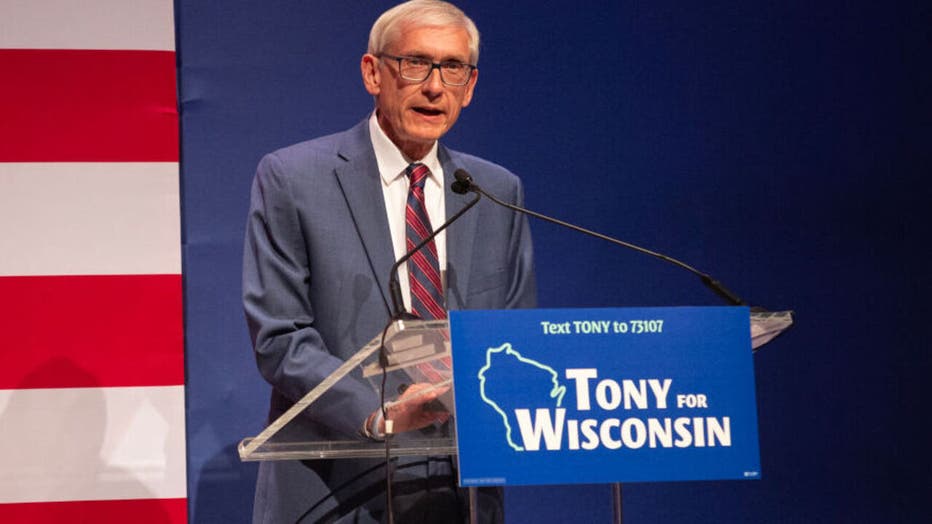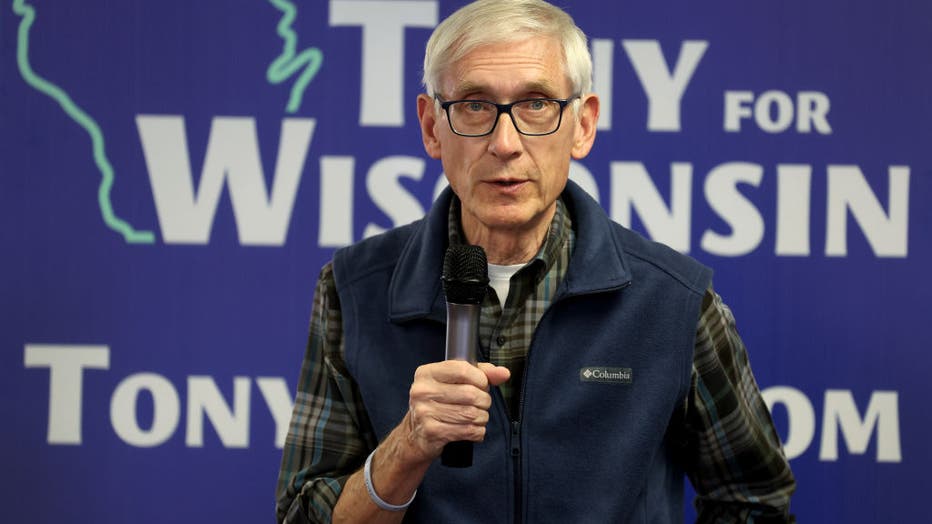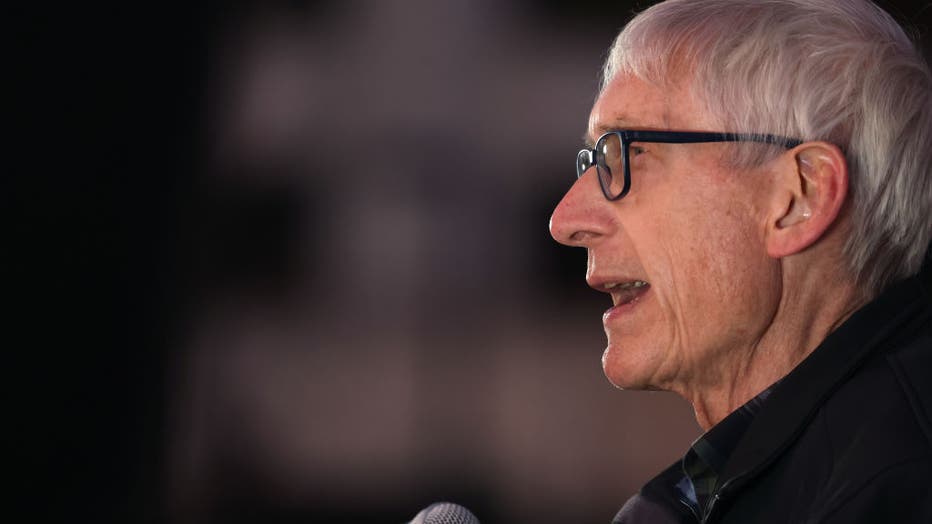Wisconsin budget surplus: Republicans, Evers face renewed talks
MADISON, Wis. - How should Wisconsin use a $5 billion budget surplus?
Republican lawmakers hoped they could go it alone with a Republican governor or reach a veto-proof Republican supermajority after the midterm elections. Neither happened, so they will have to get Democratic Gov. Tony Evers' approval, who won reelection Tuesday.
"Having this good situation could be, and should be, an opportunity to bring everyone together," said Jason Stein, research director of the Wisconsin Policy Forum. "But it certainly could also be an opportunity to fight and disagree over how to use the money."
SIGN UP TODAY: Get daily headlines, breaking news emails from FOX6 News
If the two sides disagree, the governor can wield his veto pen. Evers set the state record for vetoes in a single legislative session – 126. A legislative supermajority would have been able to overturn vetoes, but Republicans came two seats short of achieving one in the Wisconsin Assembly.
"I don’t want to prejudge our caucus. I think that most of us know with the large surplus we have, it shouldn’t be spent on expanding the size of government," said Assembly Speaker Robin Vos (R-Rochester). "I still am a believer that we need to make sure we return as much as we can back to the taxpayers, but now we have to figure out the right answer with a Democrat governor."

Gov. Tony Evers speaks to supporters during an election night event at The Orpheum Theater on Nov. 8 in Madison. (Photo by Jim Vondruska/Getty Images)
Evers' plan for the surplus is to ask the legislature to approve a 10% income tax cut and spend $2 billion more on public schools, funding things like mental health services and literacy programs.
"After a tough past few years we know our kids, families and schools need our help now more than ever to get caught up," Evers said in September.
FREE DOWNLOAD: Get breaking news alerts in the FOX6 News app for iOS or Android.
"$2 billion is probably a little rich, we definitely need to make sure that our schools are funded," said State Senate Majority Leader Devin LeMahieu (R-Oostburg).
Wisconsin legislators and the newly-elected members chose LeMahieu and Vos to lead each chamber – the same as the last legislative session. FOX6 News asked them about priorities for the surplus.
"I think we have another opportunity to reduce the tax burden on Wisconsin’s hardworking families, lower the income tax, work towards a flatter tax rate, eliminate the personal property tax," LeMahieu said. "Then we still have extra room to invest in core government functions that are probably facing inflationary pressures just like everybody else.
"If we’re going to make investments in schools, we’re probably going to need some change, also, to the school choice program, as well, look forward to having these discussions actually with the governor this session, unlike last session."
On Election Day, Republicans picked up one seat in the 33-seat Wisconsin Senate to reach the 22-seat supermajority in that chamber. While they added three Wisconsin Assembly seats, it's still two short of a supermajority there.
The new terms start in January. What kind of consensus the legislature and governor reach is still an open question.
Other items on the table
Also on the horizon: Fights over the state's 173-year-old abortion ban, election law changes, marijuana legalization, parole policies and what to do about PFAS pollution.
Vos, in an interview Thursday on WISN-AM, suggested he would compromise with Evers if it means enacting conservative priorities, such as tax cuts. Vos also appeared to oppose seeking new restrictions on voting. Evers has vetoed several voting law changes this year.
"The number one thing for us to remember is that when Tony Evers won reelection, that means that our chances to change current law pretty much stopped on elections," Vos said.

Gov. Tony Evers speaks with supporters during a canvas launch event on Nov. 7 in Milwaukee. (Photo by Scott Olson/Getty Images)
Evers has also promised to increase funding for local governments, push gun safety laws, spend money on repairing roads, increase funding for the University of Wisconsin System and legalize marijuana.
Vos said he was open to spending more on schools, but only if Evers bends on his opposition to universal school choice.
All of Evers' proposals have to win approval from the Legislature, which summarily rejected most of what Evers wanted in his first term.
"I’m not all that foolish. I understand there’s a whole bunch of Republicans in the Legislature and we need to work with them, and we’ll do the best we can," Evers said. "But obviously we will not do things that are simply against our core feelings."
A case in point: abortion.
Evers supports a lawsuit filed by Democratic Attorney General Josh Kaul seeking to overturn the state's abortion ban. Republicans, who support banning abortion, have shown little willingness to soften the law.
"I don’t see a way to solve this legislatively," Evers said Wednesday, voicing confidence in the chances of winning the lawsuit.
Vos on Thursday called on the legislature to pass a bill granting rape and incest exceptions to the state’s abortion ban to prevent the lawsuit from overturning the entire law.

Gov. Tony Evers speaks to union workers at an event on the steps of the state Capitol on Nov. 7. (Photo by Scott Olson/Getty Images)
Evers said during the campaign that he would veto any bill granting exceptions because he wants to see the entire ban overturned.
Vos said he wanted to test Evers' resolve on that issue by passing a bill with exceptions.
Senate Republicans have also stymied Evers on appointments, refusing to confirm the governor’s picks and thereby allowing Republican appointees to remain in their positions. Evers called on LeMahieu to take action to allow his picks to take over.
Evers pointed to his 3-point reelection win – three times his victory margin in 2018 – as a sign that Wisconsin residents back his agenda.
"At some point in time, the will of the people will become the law of the land, and I hope that happens within the next four years," Evers said.
The Associated Press contributed to this report.

